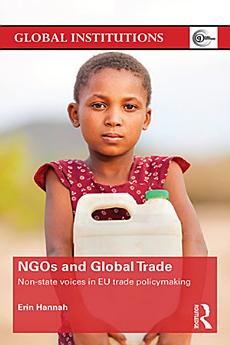NGOs and Global Trade: Non-state voices in EU trade policymaking
About this ebook
Hannah advances a constructivist account of the role of NGOs in the EU’s trade policymaking process. She argues that NGOs have been instrumental in providing education, raising awareness, and giving a voice to broader societal concerns about proposed trade deals, both when they take advantage of formal participatory opportunities and when they protest from the streets and in the media. However, the book also highlights how NGO inputs are mediated by the social structure of global trade governance. Epistemes—the background knowledge, ideological and normative beliefs, and shared assumptions about how the world works—determine who has a voice in global trade governance.
Showing how NGOs succeed only when their advocacy conforms broadly to the dominant episteme, this book will be of value to scholars and students with an interest in NGOs and international trade negotiations. It will also be of interest to policymakers, national trade negotiators, government departments, and the trade policy community.
About the author
Erin Hannah is Associate Professor of Political Science at King’s University College at the University of Western Ontario, Canada. She is an international political economist specializing in global governance, trade, sustainable development, poverty and inequality, global civil society, and European Union trade politics. She has published articles in Journal of International Economic Law, Journal of Civil Society, Journal of World Trade, Politics, and Third World Quarterly. She is co-editor (with James Scott and Silke Trommer) of the book Expert Knowledge in Global Trade (Abingdon, Routledge, 2015).






